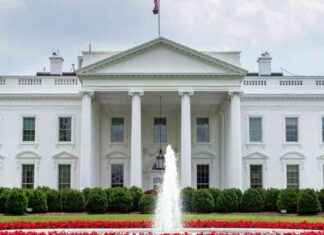The issue is existential. What place wants to occupy Europe in a world increasingly militaristic?
The contours of the diagnosis become clear. Not only the united States, the global superpower, has among the pillars of its hegemony, a military muscle unequalled and the provision of political and social use. We assist now to a growing activism military of other powers. It is not so much a question of increase in spending —there is, but moderate: 1,78 trillion globally in 2018 compared to 1.68 in 2014, according to data in constant dollars, 2017 Institute for International Studies, Stockholm Peace—. It is a matter of arrangement to the action.
Russia went out of its lethargy with the operation in Georgia in 2008, increased in Ukraine in 2014 and now acts with force in Syria, and with increasing intensity in Libya (in support of the general Hafter in the East).
More recently, Turkey has also broken the mould and acts as the protagonist on the outside with an offensive of scale in northern Syria and now the offer of support of war to the Government of Tripoli (West).
Other articles in the series ‘The Compass European’
what Better to have champions or competition? Trump, Johnson, Putin, Erdogan: EU is surrounded by adversaries, The Mediterranean incubated hurricanes politics; Russia and China ride the waves to Be point or be eat There are islamic threat, yes. But also islamophobia and anti-semitism, The EU sees a tunnel at the end of the light Putin 2007, Macron 2019 faults in the engine the franco-German EU Thirty years later, a curtain of moral divides Europe Have you lived in the EU in its heyday?
These actions have earned both countries a role of the powers of the key in the crisis of Syria and Libya.
on the other hand, China continues the powerful modernization of her armed forces, militarized, and, without any disputed territories, extends the radius of action of its means of warfare with technological development and muscle exercises.
In this scenario, the senior european policy speaks strongly to move forward in the european military integration. On the one hand, there are the efforts to coordinate the industry, the acquisition of media that are compatible and complementary. In short, we have greater cohesion, coherence, economies of scale in the material and the personnel that we have.
on the other, occur attempts to promote capabilities of rapid deployment common: the action.
a Lot of it reflects on the discrepancies of the european Governments in the foreign policy objectives that hinder the operation common. Unless it is speaking of something more difficult to measure, but that certainly weighs into this equation: the reluctance of european societies ale the use of military force. For different reasons —historical and recent— the psychological readiness to this kind of entrepreneurship is low in many countries.
These two factors together and the ideals that governed the european project make it extremely unlikely that, to where I gaze, Europe to play a military role leading not only to global scale, but even in your environment. This can be considered to be morally praiseworthy but it forces you to look at the deficit of strategic leads.
If, as they claim, their leaders, Europe wants to be a great actor, geopolitical, should assume the boundaries of the levers at its disposal —trade, technology, culture— and to think deeply about how to overcome them. The crises in Iran, Syria or Libya put in evidence the stark reality of an almost irrelevance even in nearby areas.
That reflection may lead to the conclusion that the limits are insurmountable, and that the realistic option for the future is to become a sort of great Scandinavia, a place of prosperity and rights, a mediation engine, a pillar of multilateralism. It would have to be clear about what you want and can be.










